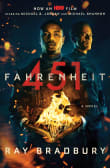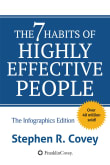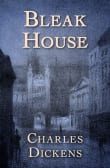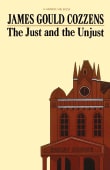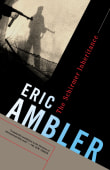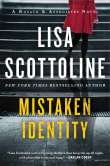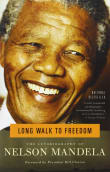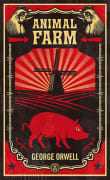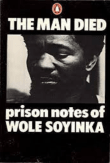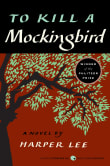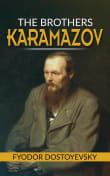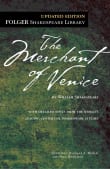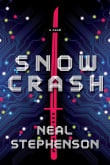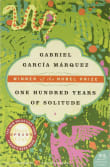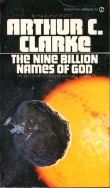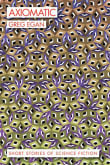The Trial
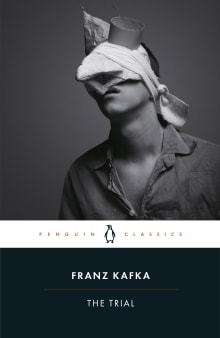
Book description
"Someone must have been telling lies about Josef K., he knew he had done nothing wrong but, one morning, he was arrested." From its gripping first sentence onward, this novel exemplifies the term ""Kafkaesque." Its darkly humorous narrative recounts a bank clerk's entrapment — based on an undisclosed charge —…
Why read it?
11 authors picked The Trial as one of their favorite books. Why do they recommend it?

This book by Franz Kafka may well be the OG book in the pursuit of weirdness in long-form fiction. Telling the harsh and anxious story of Joseph K’s unexplained arrest, Kafka brilliantly creates a universal allegory for the way we often feel like we must defend ourselves against a world that feels impossible to understand.
From Andrew's list on imagine how weird the universe can be.

This book is a brilliant example of absurdist literature that works so well because, while Josef K (the main character) finds himself in an absurd situation, we can all relate to it. It taps into a primal fear of the modern world.
Josef K, an ordinary guy, is arrested. He is not told for what crime or even who is arresting him. He must appear in court on Sunday. But, he is not told what time or where the court is. And it just gets worse from there.
It's a nightmarish situation—indeed, a Kafkaesque one. But you can envision yourself…
From Jeffrey's list on delightfully absurd works of fiction.

Yes, I know. Anyone like me who has taken on to teach Kafka in the university classroom knows that Kafka is not an easy read. However, here is my approach. I accept Kafka as a meditative humorist who can heal trauma.
The listeners laughed unbridled when Kafka read excerpts of his novel at Max Brod’s book club in Prague. If I search for cheap sentimentalism and resentment, I can go elsewhere. I always come back to this book for the heroic quality of humor, which is the best weapon against trauma.
From Jasna's list on understanding trauma and how to heal it.
If you love The Trial...

Another classic dystopian novel, The Trial, is also something that could easily happen. Kafka’s timeless character, K, wakes up one morning and is simply arrested for an unknown reason. K spends the rest of the novel trying to decipher what happened in a world of endless bureaucracy.
Although I haven’t been arrested, I can definitely identify with the sometimes ludicrous measures we go through for bureaucracy. When I moved to Tel Aviv, I had to fill out seemingly endless forms over and over again, go to offices that were only open for a few hours a day, and stand…
From Dan's list on dystopian books that could actually happen.

The starkly monochrome world described by Kafka is a troubled nightmare of our own.
It is a grim, mazelike metropolis populated with characters lacking compassion or bravery. The protagonist, Herr K., is accused of an unnamed crime by a distant and inaccessible legal body, and he is forced to defend his innocence by using scant means that prove increasingly futile.
I am fascinated by the horrifying cartoon world that Kafka weaves. Bureaus and departments physically merge according to no discernable logic. All the characters are driven by fear, ignorance, and self-interest, and Kafka’s surface-level descriptions of their appearances and behaviors…
From J.E.'s list on descriptions of the real world make it seem unreal.

“Someone must have been telling lies about Josef K, for without him having done anything wrong he was arrested one fine morning.” This is how Kafka’s stark novel The Trial begins. It is a thrilling, hilarious, and bleak tale, set in a strange bureaucratic world of bizarre rules and arbitrary justice. K never knows why he is on trial or what crime he is supposed to have committed. If you want to know where the adjective “Kafkaesque” comes from and what it means, read this book. And if you are a boss, remember that all organisations can show Kafkaesque tendencies…
From Stefan's list on reads if you have to manage anybody.
If you love Franz Kafka...

Joseph K. is prosecuted by an impenetrable and faceless justice system. He doesn’t even know the accusation hanging over him. If he does nothing, he can go on with his life. If he wants to prove himself innocent, K. must enter a labyrinthic bureaucracy, which will consume him. He opts for the latter.
I’ve been reading and rereading The Trial since I was a teen. Each time, Kafka’s dense prose drags me into his universe’s strangeness. With K., I wonder about the meaning of the parabole Before the Law; with him, I walk through the intricate corridors of the Justice…
From Mario's list on where reality dissolves into strangeness and wonder.

A surreal, tense, almost absurd story that was never supposed to see the light of day. Published after Kafka’s death, The Trial is the story of Joseph K, who is unexpectedly arrested for an unspecified crime and subjected to the mercy of a court system that is as irrational as it is inexplicable. Despite its absurdity, the story holds a real menace and ever-present claustrophobia related to the desperate and futile attempts of Joseph K. to find answers and clear his name. The perfect dystopian book to feed your rebellion against inaccessible and unjust institutions and their systems.
From Mikhaeyla's list on dystopian to feed your rebellious spirit.

“Someone must have been telling lies about Joseph K., for without having done anything wrong he was arrested one fine morning.” So Kafka introduces us to a baroque, magical-realist, and often hilarious shadow-world of shabby, corrupt justice. This is the finest fictional study—and parody—ever created of conscience gone berserk. I love it most of all for its devout darkness that sparkles with humor. The sly derision of depressive, guilty thoughts is like an escape hatch from the labyrinth of despair.
From Austin's list on realist criminal trials.
If you love The Trial...

I think this book aptly portrays the power of the state to control its people and the sinister ways in which this power can be put to use in the face of resistance. The story attests to the perpetual struggle between the ruled and the ruler. And much as Josef K’s gruesome murder, in the end, is symbolic of the ruthlessness of the state, his last words, “Like a dog!”, spoken in defiance, could well be meant to inspire the victims of political oppression never to surrender even in the face of death.
From Odafe's list on political resistance.
If you love The Trial...
Want books like The Trial?
Our community of 12,000+ authors has personally recommended 100 books like The Trial.



